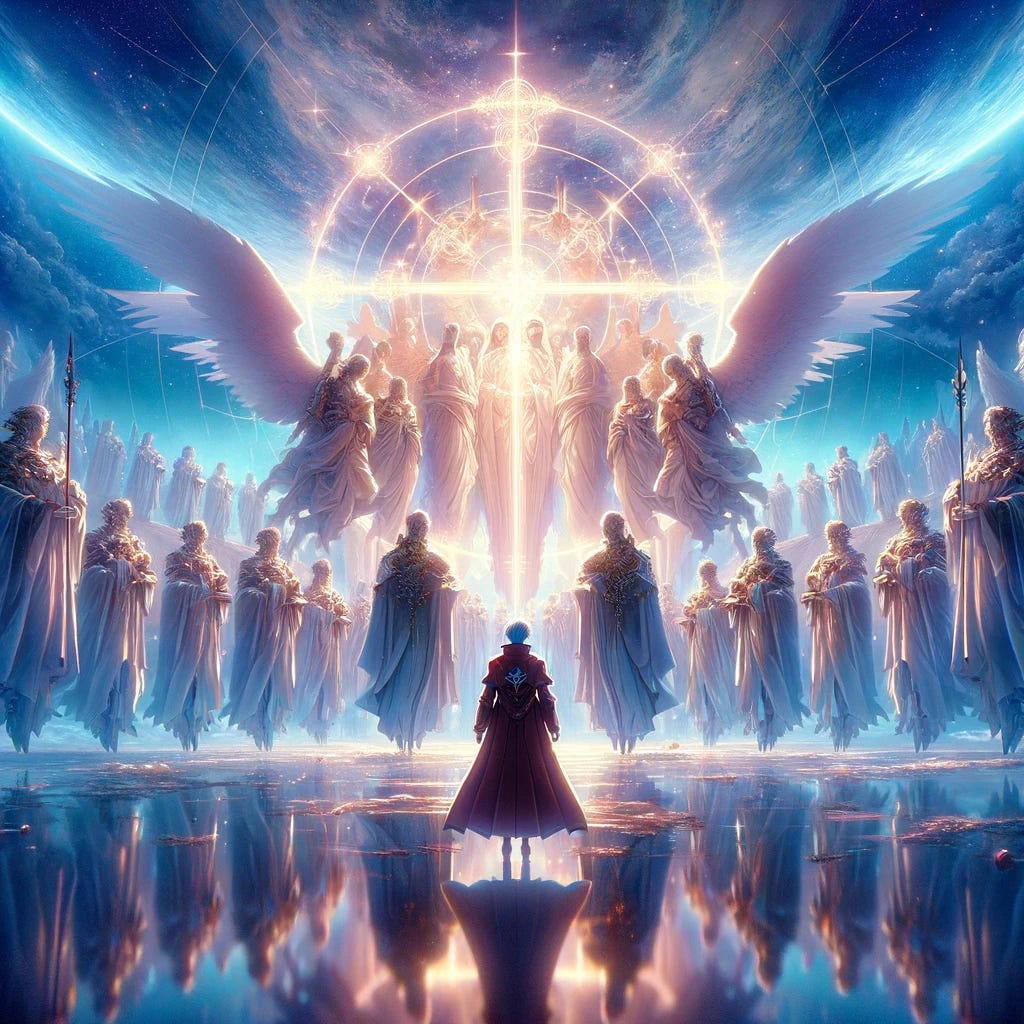Girardian Isekai Part 1: Agency and the Christian Afterlife
What then is the role of technology in the Girardian vision? Here is where I seek to interpret Girard by extending the anthropology of the cross to the Christian afterlife. Similar to how Girard views the Christian story as an allegory for human persecution, the Christian afterlife is an allegory for how we live in a thoroughly Christian society. Innovation in Christian society is akin to living according to the Kingdom of God. “The rules of the Kingdom of God are not at all utopian: if you want to put an end to mimetic rivalry, give way completely to your rival. You nip rivalry in the bud. We're not talking about a political program, this is a lot simpler and more fundamental.”
In many portrayals, the Christian afterlife is split into a trinity: heaven, hell, and purgatory. In heaven, desire is voluntarily relinquished, so innovation is immune to persecution. In hell, innovation occurs only as a form of persecution. The core thing which separates these three kingdoms is agency. There are multiple ways to respond to the Christian revelation. The antichrist responds by rejecting the idea of agency: to reject the legitimizing of persecution through the guilty act. Its vision of humanity is one of secular automota programmed by the systems around them. Persecution continues, under the guise of overturning systems rather than individuals. Welcome to hell, otherwise known as the Girardian apocalypse.



